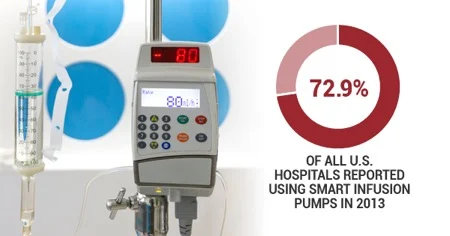Expert Tips on Managing Hospital Equipment in the Digital Age

Healthcare facilities are tasked with keeping track of all kinds of medical equipment. Hospital personnel must stay on top of inventory, assess whether equipment must be repaired, and ensure the cost of equipment stays within the confines of the operating budget. Being able to ensure that equipment is both accessible and affordable is a constant balancing act, but it's a necessary one to ensure the facility can continue to operate and that patients are able to receive the highest quality of care. With emerging technologies and healthcare reform impacting costs and quality, this is no easy feat. But if you're struggling with managing your medical equipment and its associated costs, the following tips may help.
- Consider renting vs. purchasing: Purchasing brand new medical equipment may simply be a cost your facility cannot bear. But that doesn't mean you have to go without. You can purchase certified refurbished medical equipment for a lower cost without sacrificing on quality. Alternatively, you could opt for hospital equipment rentals, which can lessen upfront costs, yet still allow you access to the latest technology. While 72.9% of all U.S. hospitals reported using smart infusion pumps in 2013, it's likely that not every hospital can afford to buy this equipment outright. By exploring medical equipment rentals or purchasing used medical equipment, these facilities can gain access to what they need while staying within their budgets.
- Create a warranty database: First of all, whether you choose to go for medical equipment rentals or purchase this equipment yourself, you'll probably want to get the warranties that come with it. While this will add on a small fee, it's often well worth the cost, particularly if maintenance is included. Then, you can create a warranty database to help you keep track of each piece of equipment and what's covered. This can help you save money on repairs or replacement, which allows you to have more wiggle room in your budget.
- Plan for shipping and receiving issues: Although one would hope everything goes according to plan, you should anticipate snafus with shipping and receiving ahead of time. Work closely with your vendor to ensure medical equipment deliveries are as scheduled so that your facility can plan to implement it correctly. Otherwise, equipment might have to be stored elsewhere until you're ready for it. Alternatively, equipment that's delivered too late could interrupt workflow and patient care. Setup of your medical equipment rentals or purchases should be performed during times that aren't particularly busy to avoid unnecessary interruptions. Luckily, Med One delivers equipment that is patient-ready and been tested and inspected.
- Involve your staff: While it may not seem like a money-saving move to involve more people, from various departments in your decisions, you might be surprised by the insight they can provide. By bringing staff members into the fold, you can avoid making unnecessary purchases or rentals. Their feedback is also incredibly valuable for creating your initial budget and making future purchases or rentals. After all, staff members will have to be trained on the equipment so that it can be used effectively and safely; their knowledge could keep you from making an expensive mistake.

Each facility has different needs to address, especially when it comes to their budget. But by implementing some of these tips, you may be able to lower your costs and increase your control over the entire process.
